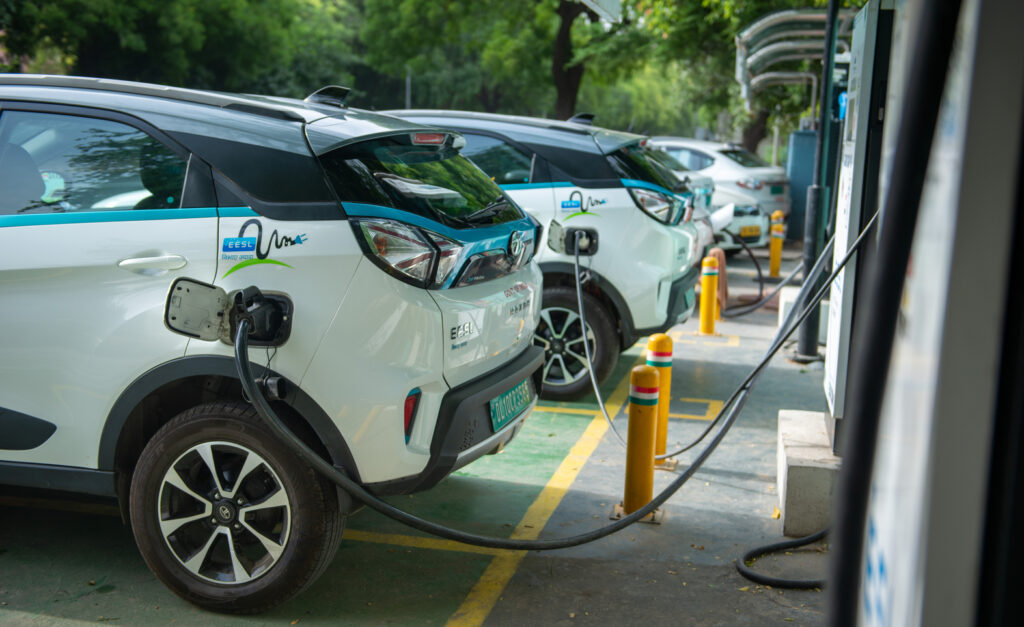
A few days ago, Transport Minister Nitin Gadkari made a shocking announcement saying, ‘The central government plans to completely eliminate petrol and diesel vehicles by the year 2034. Electric vehicles (EVs) will be running in the country instead of conventional fuel powered vehicles.’
Factors affecting the plan
The move to use only electric vehicles across the country to reduce carbon emissions and tackle climate change may sound good on paper, but if not carefully planned and implemented, India could face an unimaginable crisis. Due to factors like ‘hidden pollution’ caused by the use of EVs, inadequate infrastructure facilities for generating renewable energy, burden on the power grid and economic and geo-political disruptions, the seemingly idiosyncratic ‘all EV’ scheme may ultimately prove to be worth millions.
EV consumes two and a half times more fuel in total
The electricity needed to charge EVs mostly comes from coal-fired power plants, which emit massive amounts of carbon. Taking the Tata Nexon EV as a base, it requires about 26.7 kg of coal to charge its 40.5 kWh battery. The Tata Nexon needs two and a half times less fuel than an equivalent petrol or diesel car to cover the same distance as the Tata Nexon on such a battery. This means that an electric vehicle consumes two and a half times more energy than petrol or diesel.
Consequences of EV usage in the long run
EVs (primarily due to the production of their batteries) produce higher carbon emissions than internal combustion engine vehicles (ICEVs – petrol, diesel or gas-powered vehicles) during the production phase in general. Producing an EV of the same size results in about 15 to 68 percent more emissions than producing a mid-sized ICEV. However, EVs emit significantly less carbon than ICEVs over years of use. In America and European countries where renewable energy is accessible, ICEVs can reduce emissions by 70 to 90 percent compared to EVs. But in countries like India, which depend on coal for energy, EVs are still not a vehicle that can be considered ‘innocent’ when it comes to well-to-wheel (well-to-wheel) usage.
Energy status in the country at present and planning for the future
So far India has made significant progress in procuring renewable energy. At present, 19 percent contribution of solar energy and 10 percent contribution of wind energy in the total energy production of the country. But, since this amount cannot meet the demand of EV vehicle battery charging, we have to depend on electricity from coal.
Petrol
Achieving the all-EV target by 2034 will require doubling our power generation capacity. The government’s plan is to add 517 GW (gigawatts) to the country’s current energy output by 2032, which seems unlikely, as only 139.62 GW has been added in the last nine years. The existing power grid is not sufficient to meet the electricity demand of the country, so the existing one needs to be upgraded first. First of all, the number of transformers, feeders and transmission lines need to be doubled to prevent frequent power cuts at present.
Economic and geo-political implications
India’s goal of reducing carbon emissions through nationwide adoption of EVs is not as easy as it seems, as economic and geopolitical factors also come into play. Even if we stop the import of crude oil by implementing EV, the import of the country is not only oil. India also imports a significant amount of coal. Therefore, unless sufficient facilities for renewable energy sources are created to build EVs, coal imports will have to continue, resulting in carbon emissions not stopping. India also buys coal along with minerals like lithium, cobalt and nickel from countries like China. Therefore, keeping in mind India’s strained relations with China, energy-related risks have to be addressed. Compared to EVs manufactured in other countries of the world, there are many challenges in manufacturing EVs in the country.
India’s move to adopt EVs will reduce oil demand in the country, change trade equations and have an impact on global energy markets. To gain strategic autonomy in the EV sector, India will have to do a lot of research, set up strong supply lines, and all of that will require huge investments. This is not possible without international partnership, that’s why India is partnering with countries like Japan, South Korea and Australia to move in this direction.
Enticing offer of subsidy
The reason why people are interested in EVs is the subsidy available on the purchase of this vehicle. While the central government has invested billions in EV subsidies, state governments have also lost huge revenue by keeping low GST and road tax for EVs. Consumers also find EVs cheaper as charging is cheaper than petrol/diesel.




